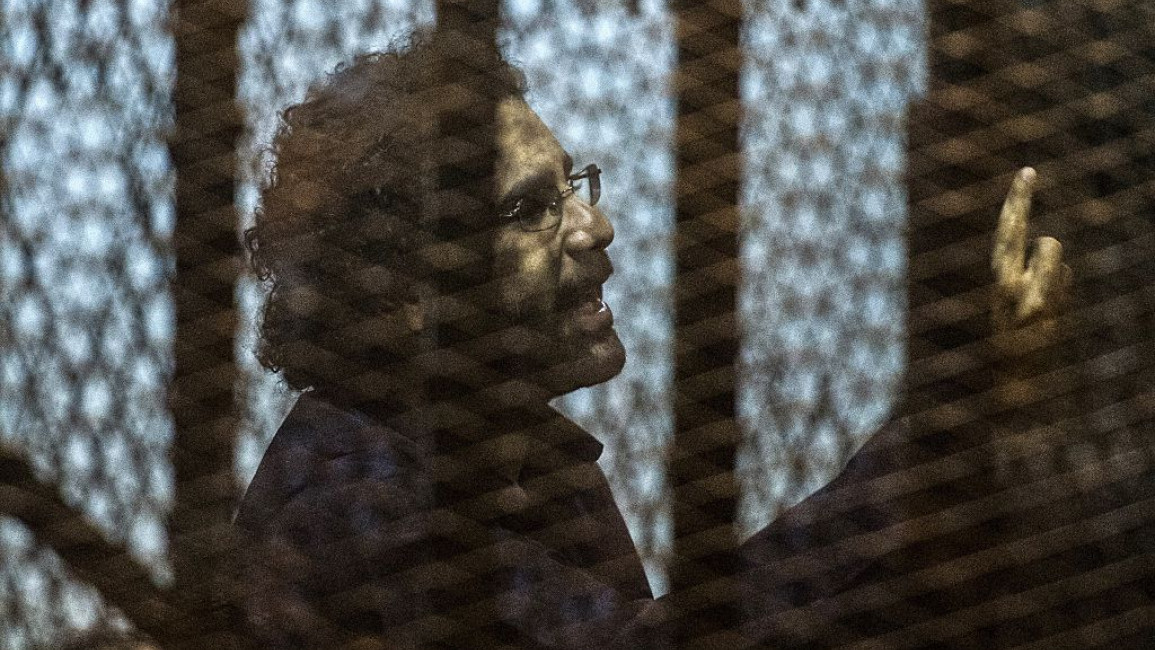Alaa Abdel-Fattah in a 'black abyss' in Egyptian jail, letter shared by sister reveals
Jailed British-Egyptian activist Alaa Abdel-Fattah said he has been kept in a "black abyss" for the last ten years, according to the excerpt of a recent letter shared by his sister.
Abdel-Fattah, a pro-democracy blogger and activist who gained prominence during the Egyptian revolution of 2011, which toppled long-time dictator Hosni Mubarak, has spent much of the last ten years in jail.
"You must remember how I have become since August 2021. I live in this horrific dark space well before the [hunger and water] strike, and the black abyss has swallowed me ten years ago," read Abdel-Fattah's letter to his sister Mona Seif, an excerpt of which she shared on Facebook.
The activist, who holds dual Egyptian and British nationality, was sentenced in December 2021 to five years in prison for "spreading false news" by sharing another user's Facebook post about police brutality.
He went on a hunger strike for nearly six months last year to protest his detention, and escalated his protest by refusing to drink water during the COP27 UN climate summit from 6-18 November 2022.
UK Prime Minister Rishi Sunak met with Egyptian President Abdel Fattah al-Sisi to discuss the activist's release.
Abdel Fattah wrote that November 2021 was the most difficult for him to endure, "because while I was screaming those closest to me were answering back with words that have no meaning, words that tell me clearly the only way those outside prison can deal with the reality of prison, is if the Prisoner stopped talking about the real absence of Hope."
Rights groups estimate that about 60,000 political prisoners are incarcerated in Egypt. Many have suffered torture, abuse, and neglect of basic needs.
"Mona, I don't have a home to return to," wrote Abdel-Fattah. "The last real home I ever had was 10 years ago. Freedom is no longer to "return" somewhere... All the hope lies with new homes that are being built now, or have not been built yet."



